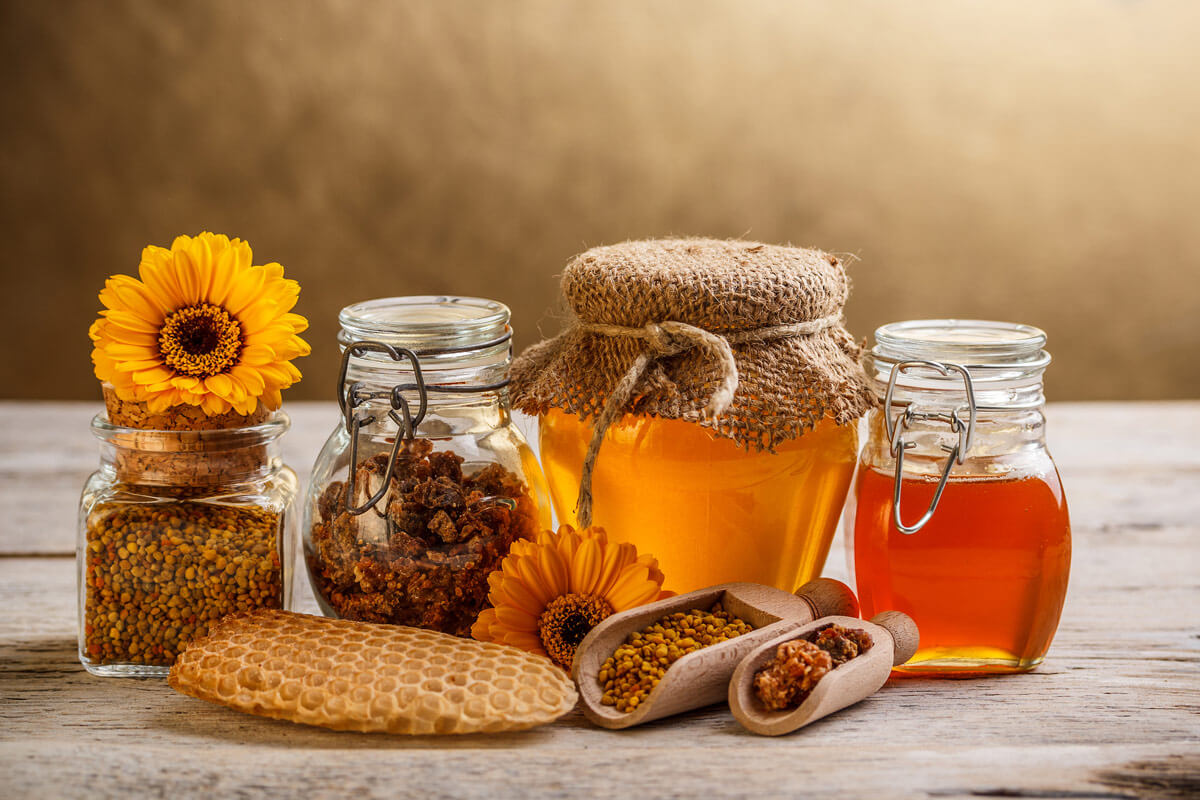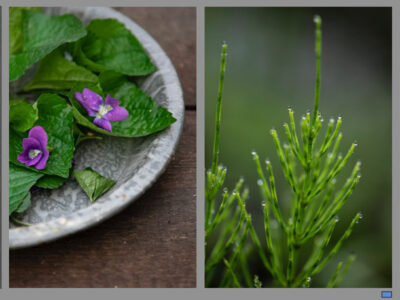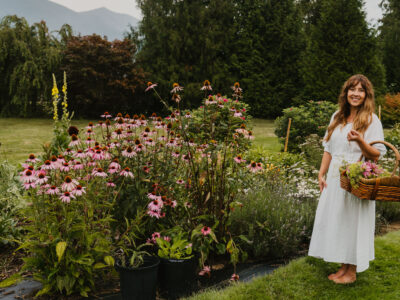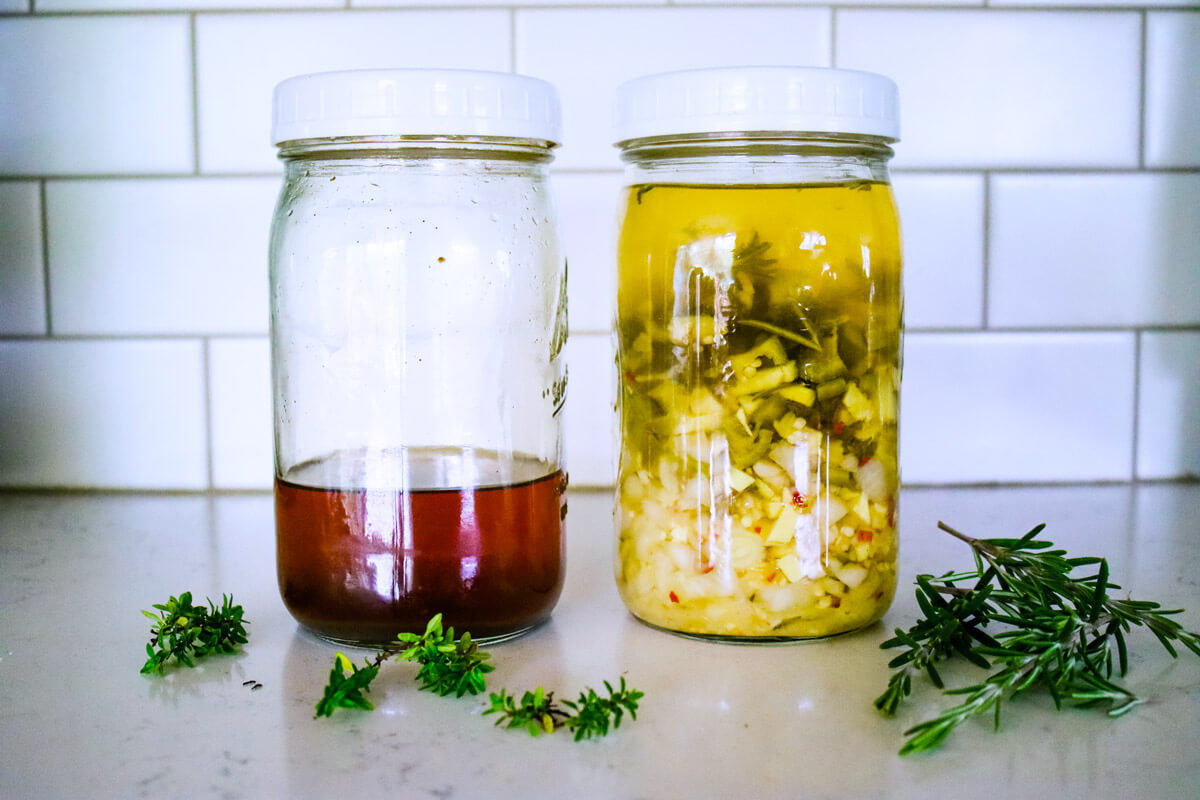Have you ever wondered if there’s a medicinal connection between the pollen bees collect and the byproducts they produce? Well there is, and the benefits are numerous. Keep reading to see why keeping honeybees has just jumped to the top of my project list here on my homestead.
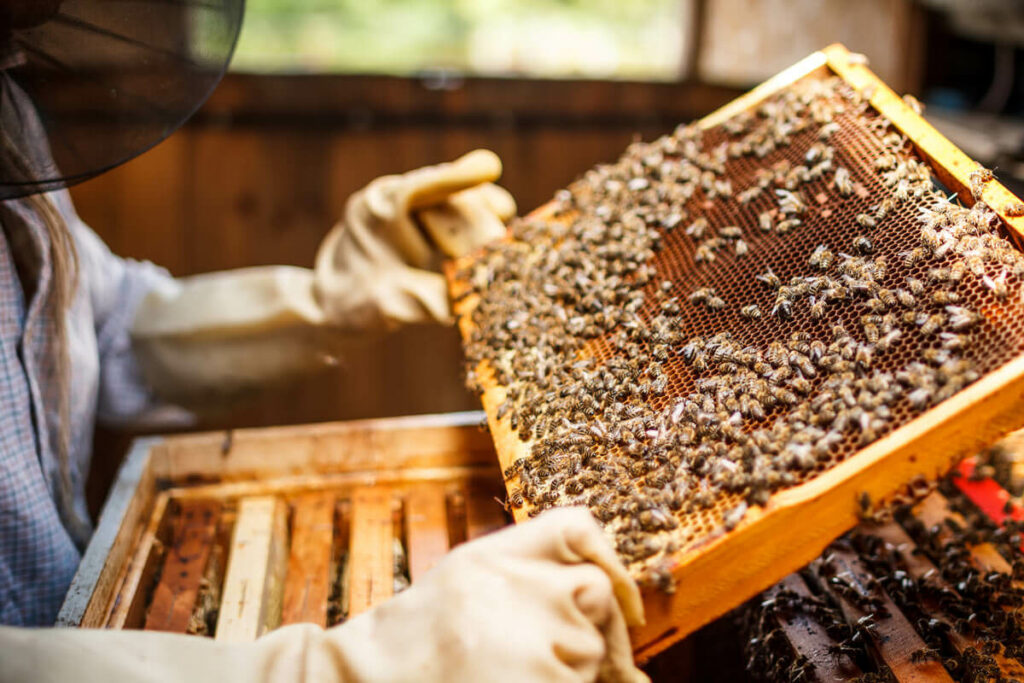
I first met Kaylee from The Honeystead this last fall at a Homesteader’s of America conference, and I was immediately drawn to her knowledge of beekeeping and the medicinal benefits of raising bees.
I couldn’t wait to have her on the podcast to discuss the medicinal properties of not only honey, but the other byproducts of bees, and how that relates to beekeeping.
In this episode (Pioneering Today Podcast #328) we’re going to discuss the link between plant medicine for humans AND bees, combining beekeeping with herbalism, medicinal byproducts of honey bees, as well as discussing the health of honey bees, and some other fun things my guest Kaylee is doing.
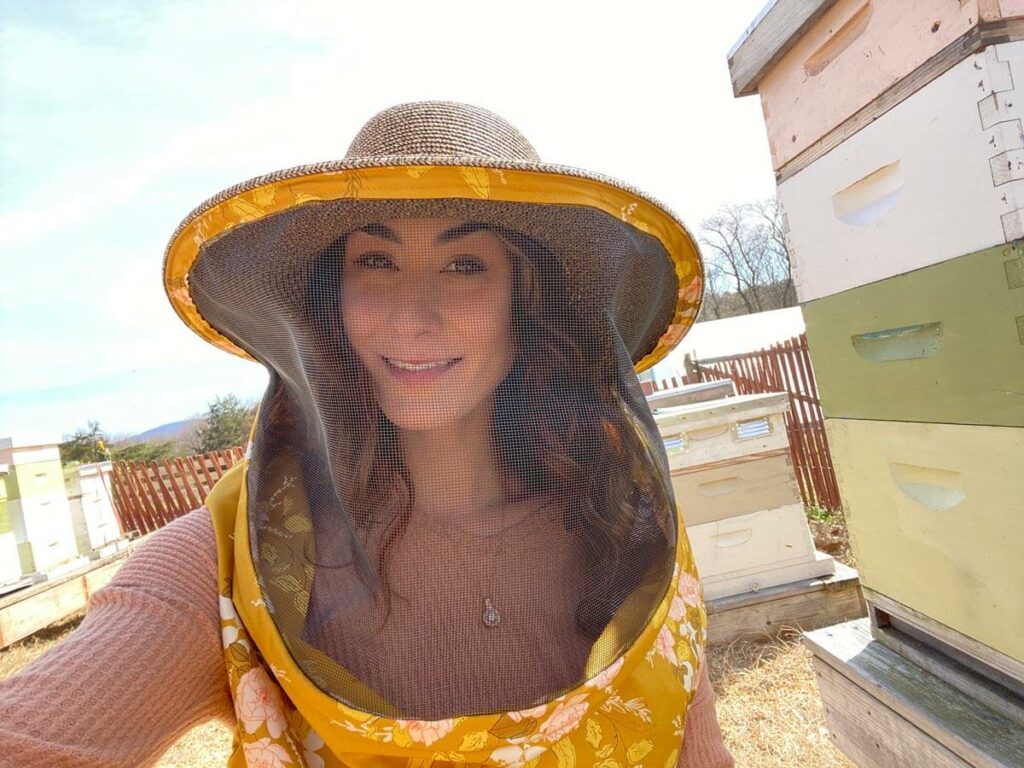
How Kaylee’s Passions Connected
Kaylee, like myself, loves all things herbalism and beekeeping (although I don’t yet have my own bees!). So when her love of beekeeping melded with the medicinal benefits of honey for us as humans, it was a match made in heaven.
By watching 24 colonies of bees and learning how they keep themselves healthy, she was able to connect the dots between the health of the bees and why honey is so beneficial for us.
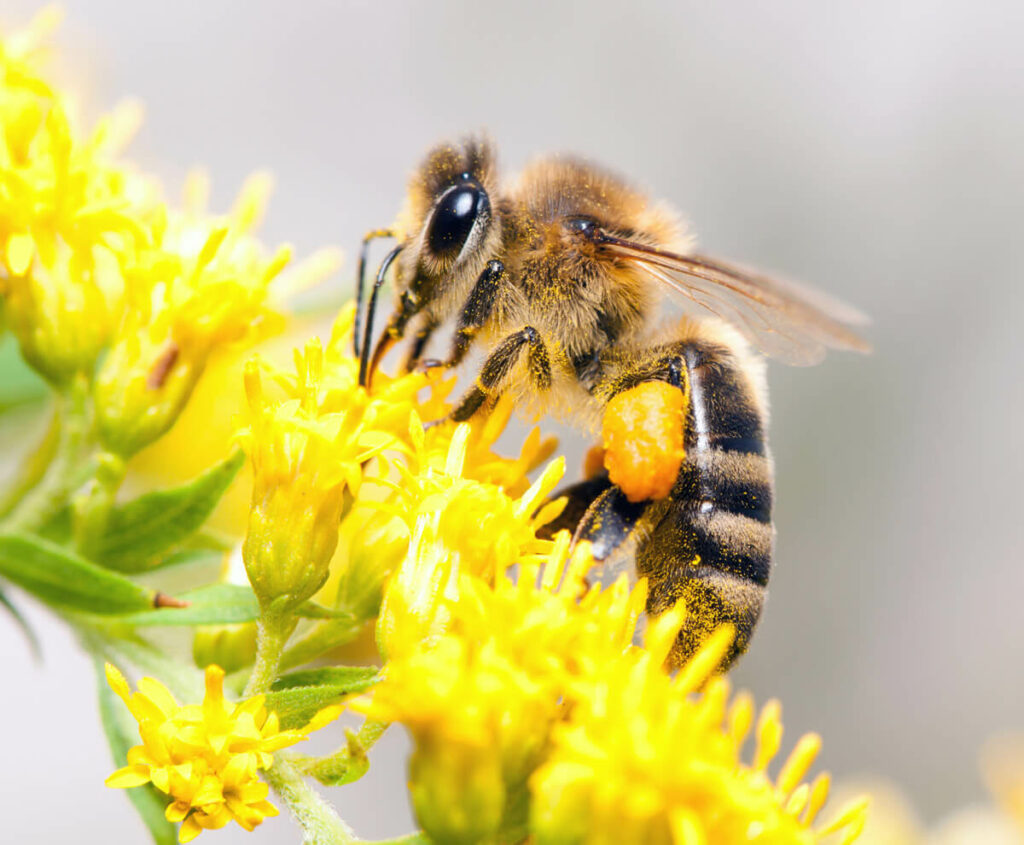
The Link Between Plant Medicine & Bees
If you search “plants to grow for bees”, you’re going to see a list of things like thyme, oregano, bergamot, etc. Basically a long list of flowering plants, but you likely won’t see many reasons why these plants are good for bees.
However, if you look at the medicinal benefits of these plants you’ll begin to see why they’re good for bees.
Bees also know what’s going to be healthy for them, this is why they will fly up to 12 miles away from their hive in search of the right pollen to not only keep them healthy but to produce honey.
🍞 Struggling With Sourdough?
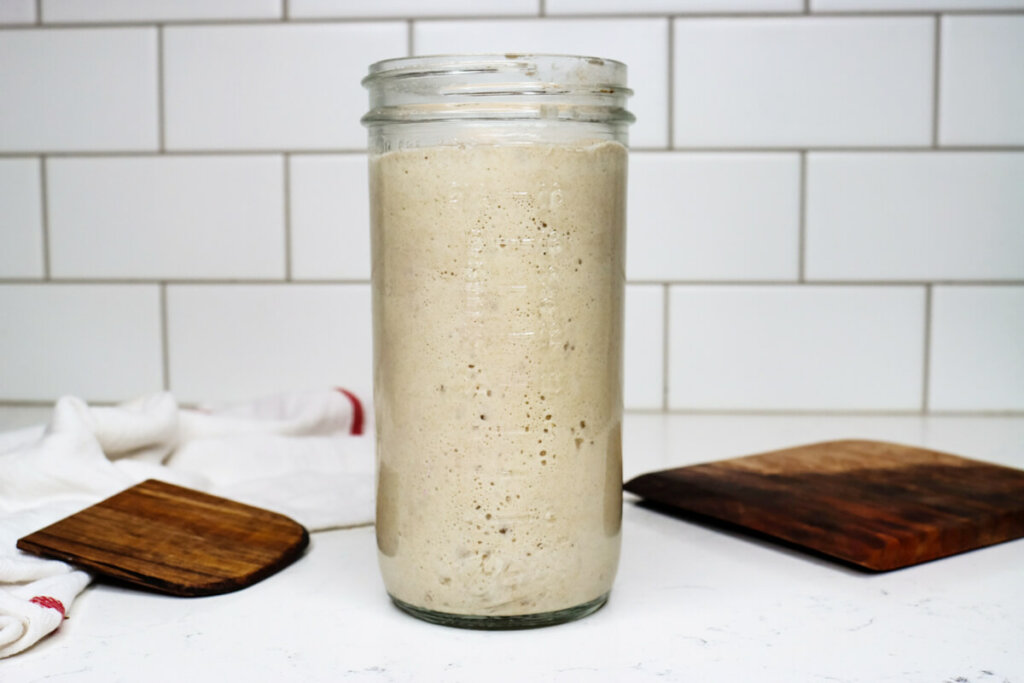
If your starter won’t take off, your loaves are dense and hard, or sourdough just flat-out overwhelms you…
👉 I’ll show you how to fix all of it.
Join my FREE workshop and learn how to make a bubbly, active starter—the right way, from Day One.
Natural Remedies Made Simple

Start your home apothecary with confidence—even if you’re brand new. Learn how to choose the right herbs for your body using the simple principles of herbal energetics.
Discover how warming, cooling, drying, and moistening herbs affect your body—so you can stop guessing and start making remedies that actually work.
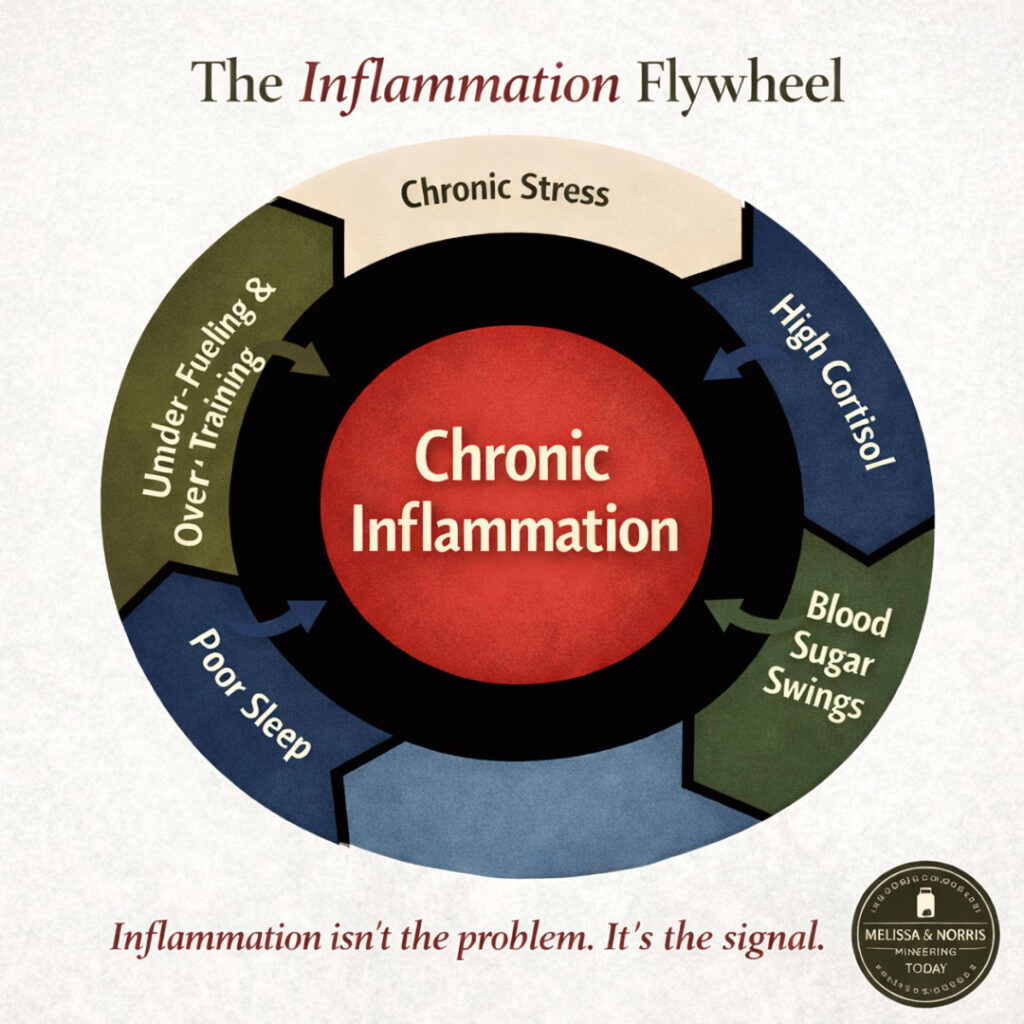
The Hidden Cycle Keeping You Inflamed
If you’ve been feeling puffy, tired, achy, or wired-but-tired, this two-page guide will help you understand what may be happening behind the scenes — even if you’re eating “healthy.”
Download the Inflammation Flywheel Guide and learn:
- Where to start so you don’t feel overwhelmed
- The 5 most common drivers that keep inflammation switched on
- Why blood sugar swings, stress, and poor sleep feed each other
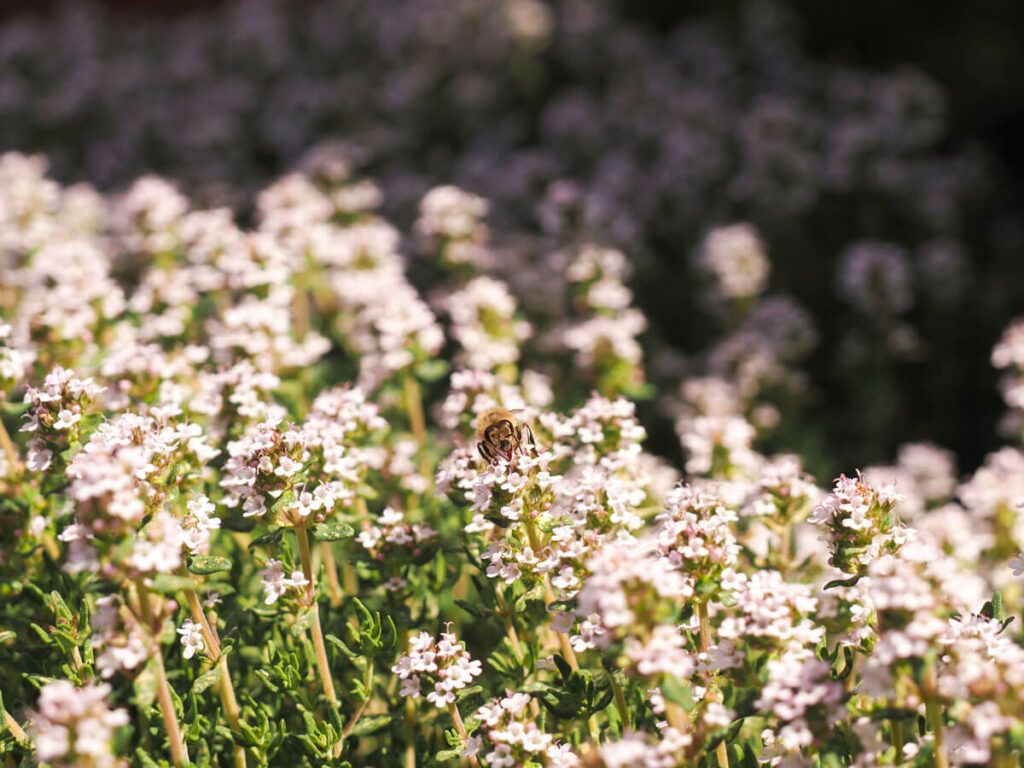
Thyme
Thyme, for example, is anti-fungal. (Source) After doing more research I found out that thyme has volatile oils on it which contains thymol which is what is used in varroa mite treatments. So when bees go and get nectar from the thyme flower, they’ll get that volatile oil on them, then as they’re cleaning themselves they’ll ingest that oil which helps keep varroa mites down.
Varroa mites are pesky little mites that can really debilitate an entire colony (if the colony gets weak enough). This is an issue that beekeepers really have to be mindful of, so that’s one reason why thyme is so great for the bees.
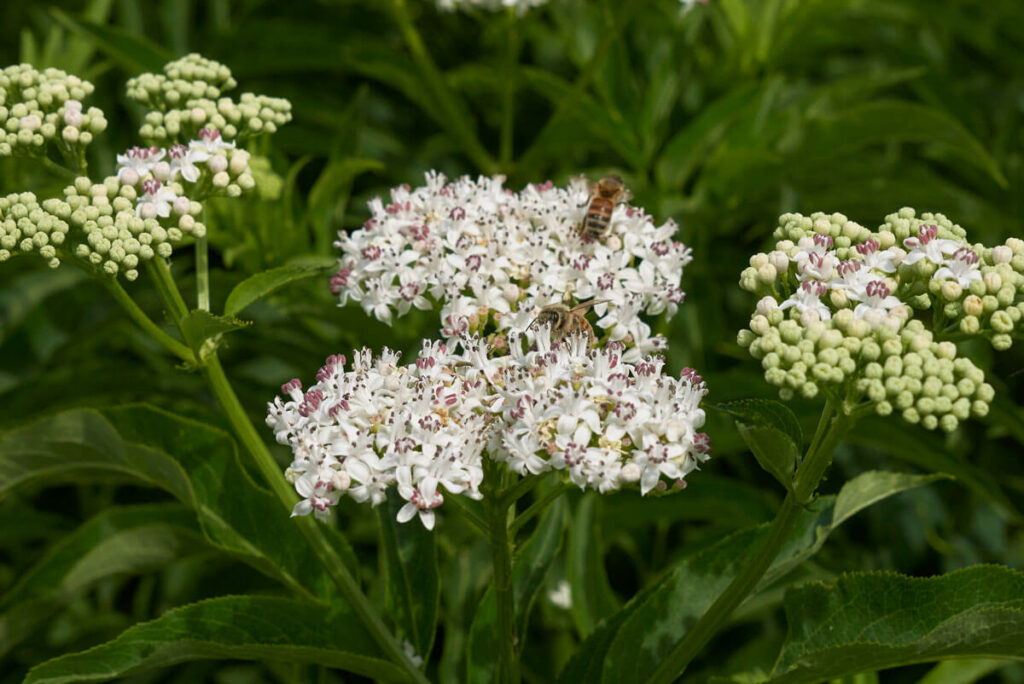
Elderberry
Elderberry is a medicinal plant that’s very beneficial for us as humans. (Source) (Learn how to make elderberry syrup as well as many other items from elderberry). Elderberry plants are also healthy for bees.
In fact, an acre of elderberry can roughly produce anywhere from 600-800 pounds of pollen! Not only that, but the bees can then make upwards of 60 gallons of honey from that plant.
Table of Contents[Hide][Show]
Tree Sap
Kaylee runs a tree mill at her home so they’re continually milling up logs from different species of trees.
One day she noticed that there were swarms and swarms of bees rolling around in a pile of cedar dust. What she realized was happening is that the bees were actually collecting the sap from the cedar shavings!
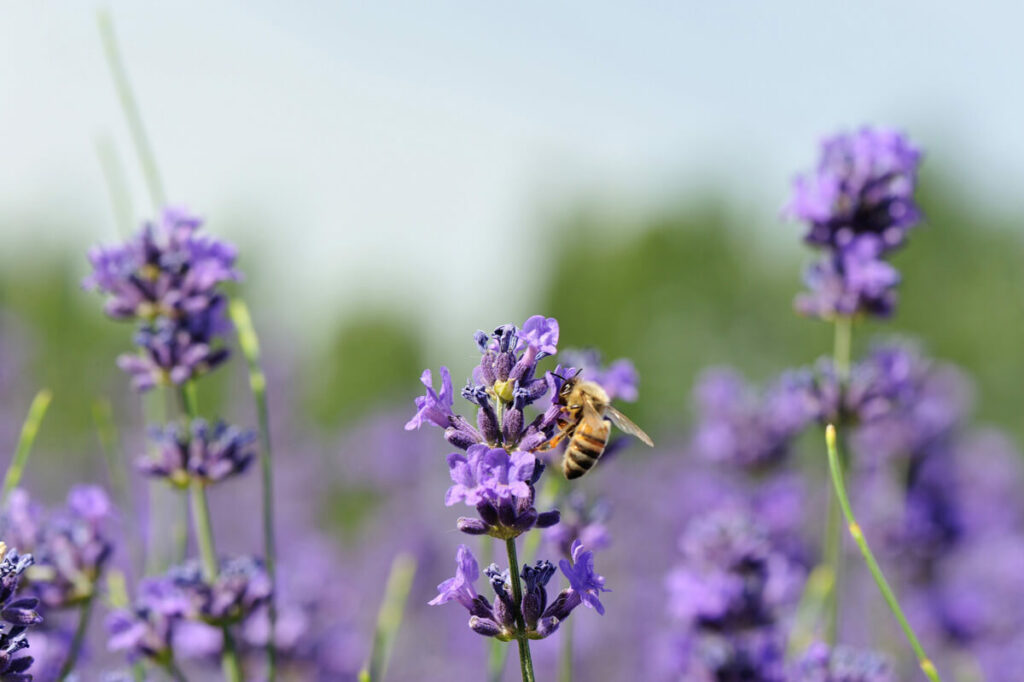
More Herbs that are Beneficial for Bees
There are also medicinal benefits for bees from plants like oregano, wild bergamot, borage, and wild lavender to name a few… but this journey of linking plant medicine to bees will keep Kaylee busy for the rest of her career!
How This Benefits Us
When a honeybee is feeding on the pollen from medicinal plants, the honey that is created from those plants also gives medicinal benefits to us!
It’s important to note that I am not a certified medical practitioner. This post is not intended to diagnose or treat but is for informational purposes only. Please contact your healthcare professional before introducing new herbal and natural remedies into your wellness routine.
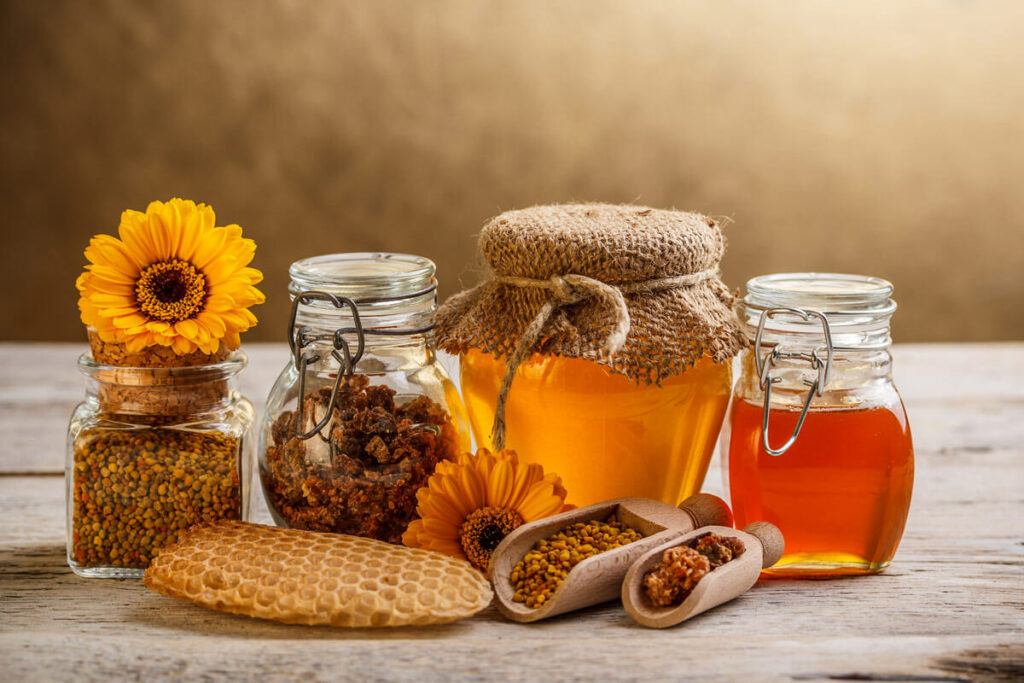
Medicinal Byproducts of Honeybees
Honey
When we think of the medicinal byproducts of honeybees, I think it’s safe to say that most of us think about honey.
When you start doing a deep dive into the health benefits of the other byproduct of bees and what they can do, it’s incredible! You quickly realize the benefits of honeybees are not just about the honey.
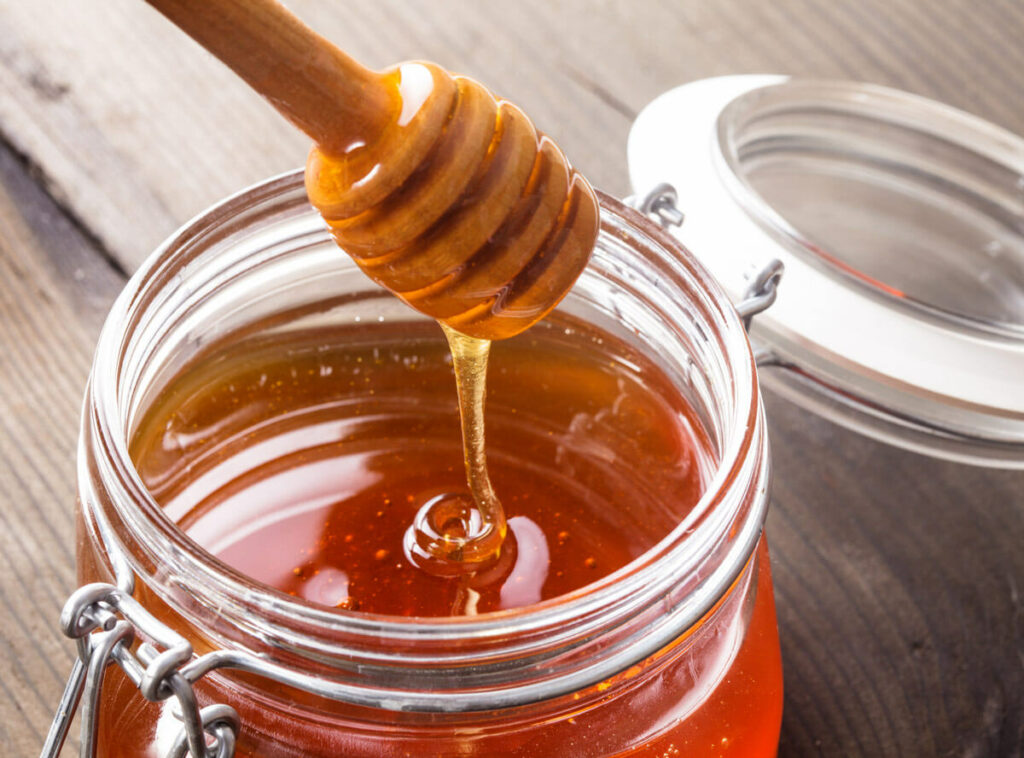
Medicinal benefits of honey include:
- Antibacterial (Source)
- Antifungal (Source)
- Wound healing
- Moisturizing
- A good source of antioxidants
- Contains phytonutrients
- Helps digestion (make Ginger Infused Honey here)
- Soothes a sore throat or cough
- Good for seasonal allergies
- Helps heal gut issues
- Restores hydration
- Soothes skin irritations, stings, bug bites, etc. (Source)
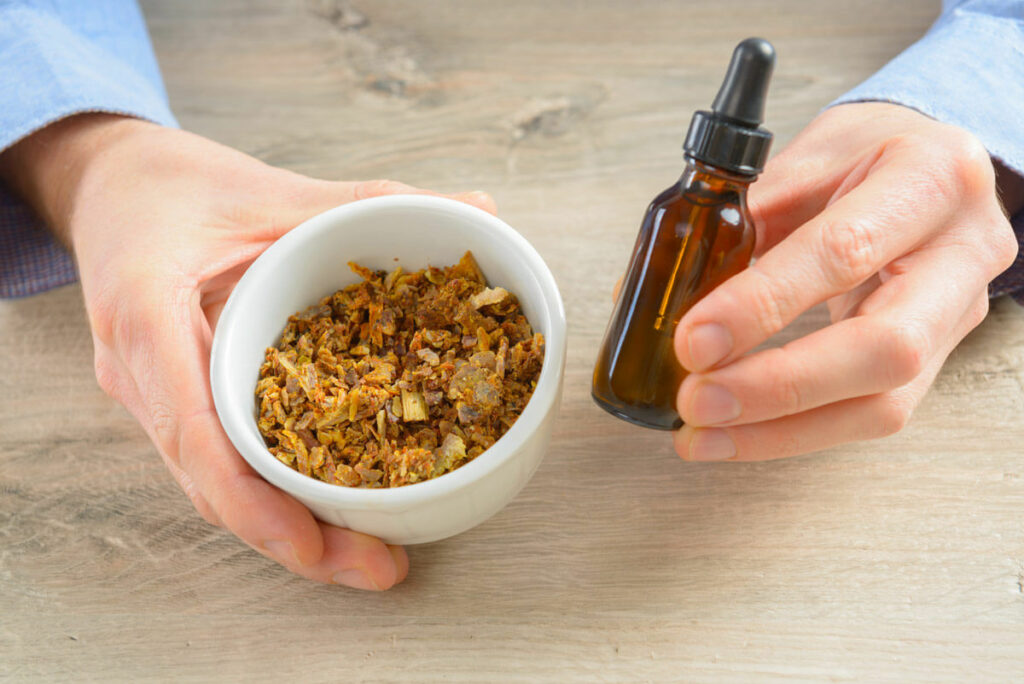
Bee Propolis
Bee propolis is essentially a glue that keeps a bee colony healthy and safe. It can be made up of 300 different species of tree resin.
When Kaylee was asked what herb she would use to keep her and her family healthy, her answer was bee propolis. Kaylee has been tincturing her own propolis and using it throughout the cold and flu seasons to keep her family healthy.
Propolis is used to seal up any cracks in the hive. When Kaylee goes and does hive inspections, she has to break that seal to check on the colony. She says there’s an audible “crack” of the seal breaking, and the smell is of thousands of wildflowers!
Medicinal benefits of bee propolis:
- Anti-fungal
- Anti-viral
- Wound healing
- Good for skin irritations or eczema (Source)
How to Make a Propolis Tincture
You can watch Kaylee make a propolis tincture right here. But in a nutshell, Kaylee takes the sticky propolis and adds 2 parts propolis to 1 part Everclear (or Vodka) to create her own tincture.
She takes this tincture daily to aid her immune system, but also will use the tincture topically if she has any skin irritations.
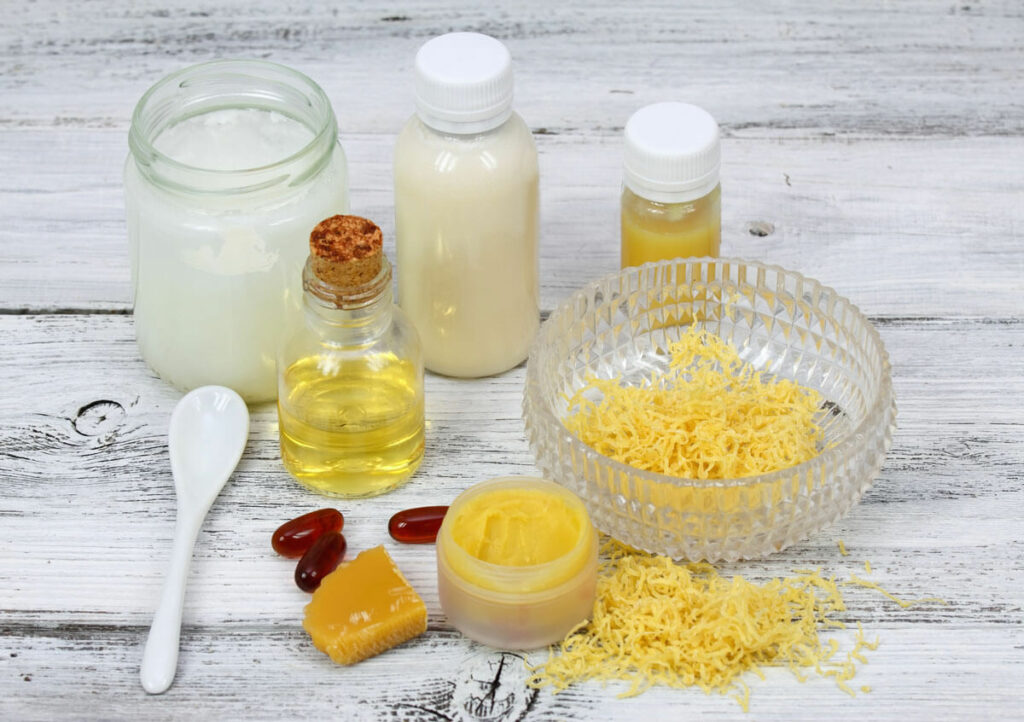
Beeswax
You can get beeswax pretty readily, but what Kaylee found out about beeswax is that it’s actually antibacterial.
Because of Kaylee’s medical background, she’s worked in the operating room as a first assist for many years, and what she’s found, in orthopedic surgery, is that they take a sterile mixture of beeswax (called “bone wax”) and use it to help control bleeding of the bone.
This is modern-day medicine using natural healing methods from nature… I love it!
Medicinal benefits of beeswax:
- Antibacterial (Source)
- Antimicrobial (Source)
- Used as “bone wax” to stop bleeding of bones during orthopedic surgery (Source)
I use beeswax in my homemade wood butter which helps seal, condition and protect all my kitchen wood products (even my butcher block countertops).

Pollen
You can actually collect pollen by putting up traps near bee colonies. The pollen art that is collected is stunning as pollen from different flowering plants are different colors.
Pollen is still being researched, but so far it’s been shown to be:
- anti-fungal
- anti-microbial
- anti-viral
- anti-inflammatory
- paddock protectant
- anti-cancer (Source)
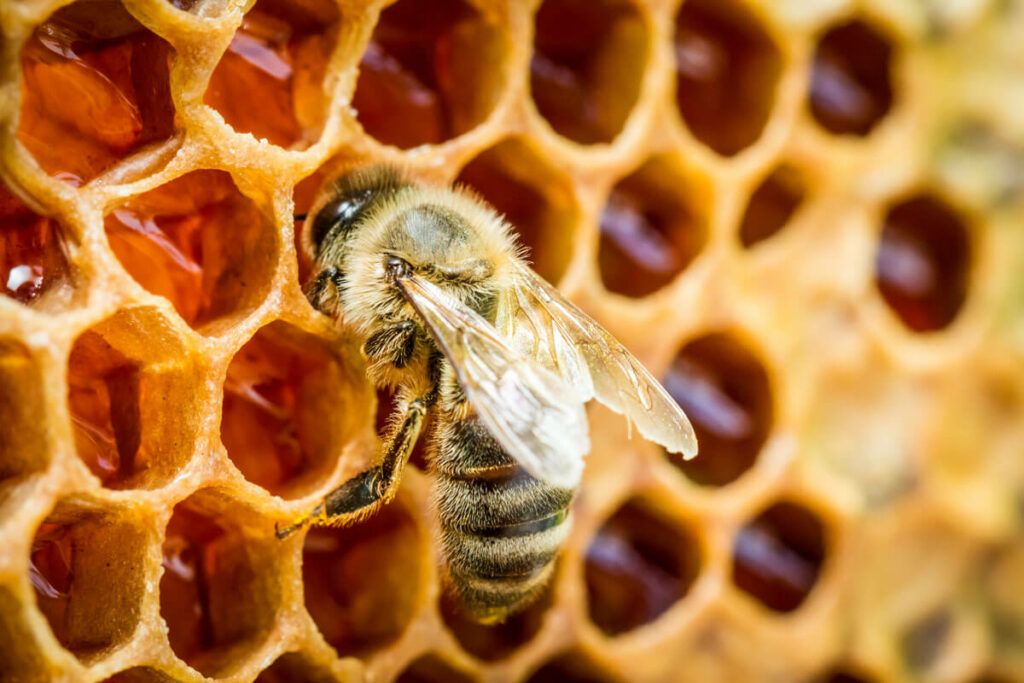
How Can We Help the Health of Honeybees?
Across the US there have been a lot of colony collapses, so I asked Kaylee what she thinks we can do to help revive the honeybee population.
She said she thinks the backyard beekeepers are the future. In a sense, she thinks they’ll become very popular in the same way raising backyard chickens has.
Since Kaylee started raising bees, she’s watched her pastures turn from dull and plain to be so vibrant, and her garden harvests have doubled.
Even just listening and sharing podcasts like this one with friends to spread the awareness of how we can help, what plant species we can plant, etc. are going to go a long way in helping keep bees around for good.
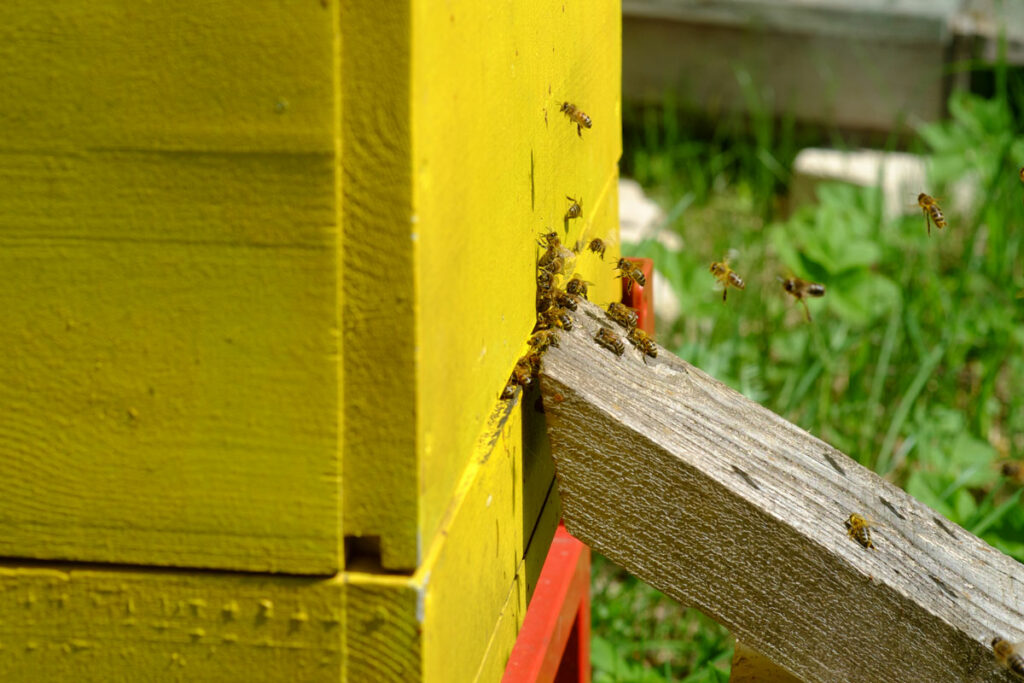
How to Buy Your Own Backyard Bees
When purchasing bees, there are many different ways to can go about obtaining them. We’ll break down the differences and which Kaylee recommends and/or prefers below.
A Nuc of Bees
Kaylee recommends buying a “nuc” of bees. What this means is you’re buying a small box, typically with five frames.
A nuc contains
- a queen bee who is already laying
- eggs
- a brood
- pollen
- nectar
- capped honey
Kaylee recommends this to first-time beekeepers because you’re essentially buying a kit and everything is ready to go.
A nuc is essentially a big colony that’s been reduced down to five frames which is a very manageable size and easy to find space for, even on small properties.
Packaged Bees
The other option for buying bees is in a package. If you order packaged bees they typically come from the south, so generally speaking, they’re not acclimated to your area.
The queen comes in a cage that you would then add to the colony, but doing it this way requires you to have your own bee box for the colony to be placed into.
This isn’t ideal because you’re getting a colony that has to begin from scratch and grow and build itself.
Catching Wild Bees
Catching swarms is Kaylee’s favorite way to obtain bees. As she says, “they really love their feral bees”. She loves the heartiness of those swarms and contributes that to the reason they have been able to keep so many swarms.
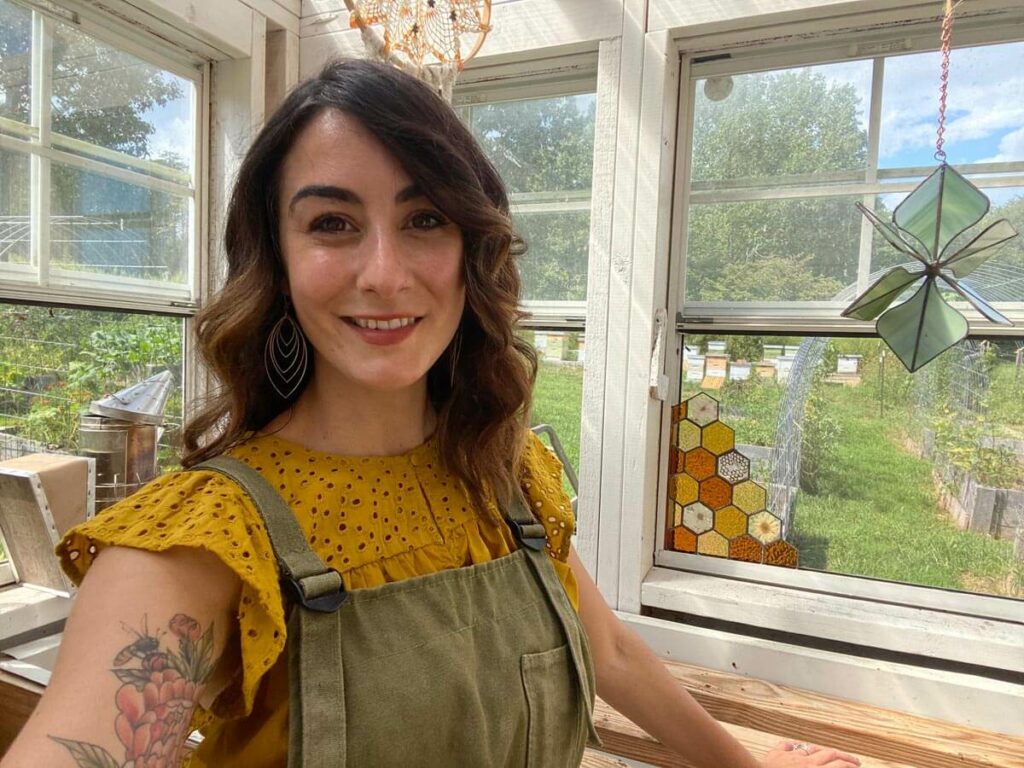
Where to Find Kaylee
You can find Kaylee on her blog, The Honeystead, over on her YouTube channel, or on Instagram where she shares the start of her dream “Beekeepers Apothecary”, videos of her homestead, the medicinal benefits of bee byproducts, and even herbal-medicinal recipes and tutorials.
Beekeepers Apothecary
Kaylee is currently working on a course with her mom (who just bought the 20 acres adjoining her property) called Beekeepers Apothecary. It’s not yet available, but it will be all about the beekeeper’s approach to herbalism.
She’ll be offering online workshops sharing what they’re doing, as well as sharing her research and studies with others who want to learn the amazing benefits of plant medicine.
Stay tuned as we’ll update this post when her course becomes available.
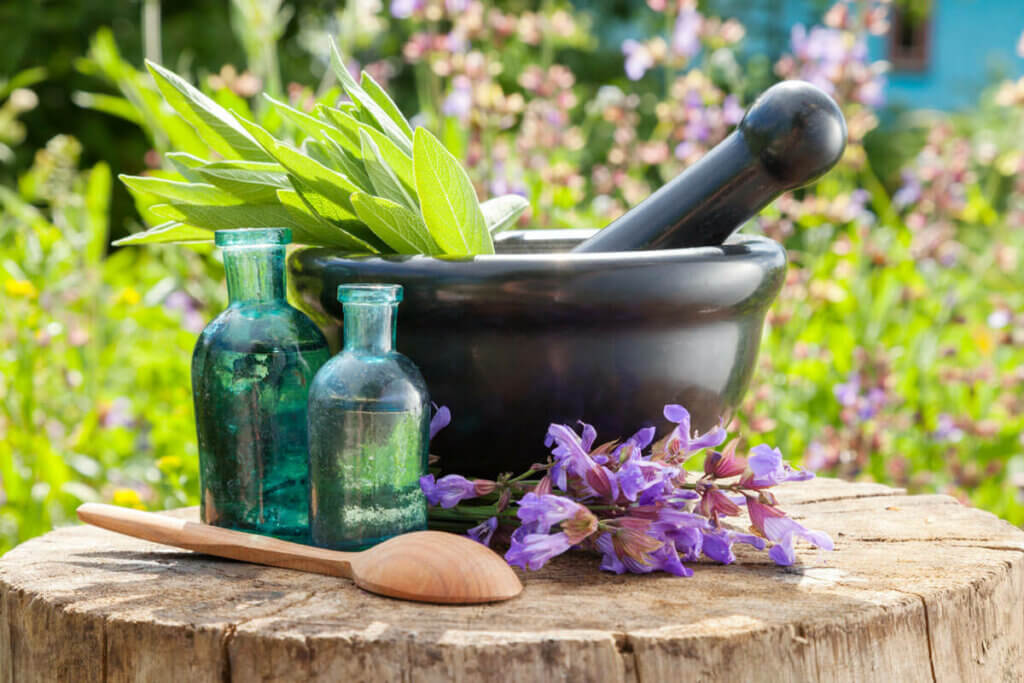
More Posts You May Enjoy
- Herbal Home Remedies for Cold and Flu
- 7 Natural Cough and Cold Herbal Remedies
- How to Use Herbs and Natural Remedies At Home
- How to Make Elderberry Syrup + Additional Add-Ins
- Herbal Medicinal Tea – How to Make Your Own
- 7 Ways to Use Medicinal Herbs at Home
- Homemade Traditional Fire Cider Recipe & Benefits
- Echinacea Tincture – How To Make It & Use It
[fusebox_transcript]
